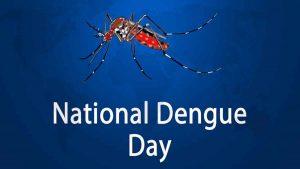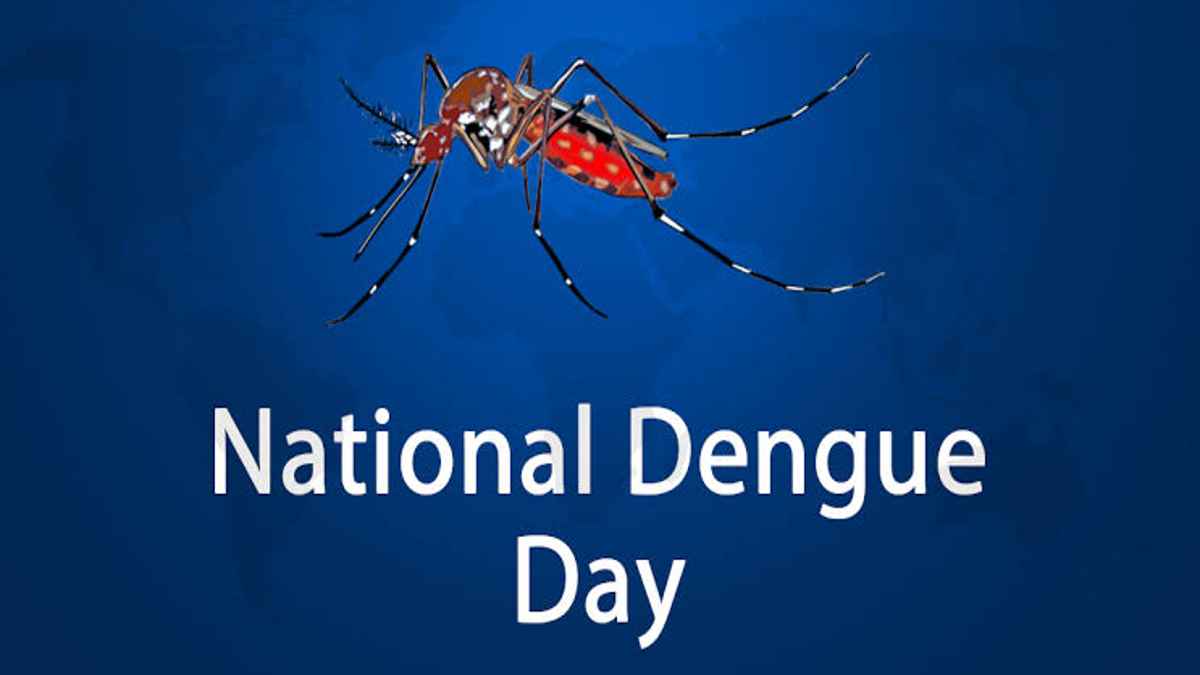
National Dengue Day 2023
National Dengue Day is observed on May 16 every year to raise awareness about the mosquito-borne disease. Dengue cases usually surge in India during and after the monsoon season. The Union Ministry of Health and Family Welfare organises different events to observe National Dengue Day at several levels across the country. Dengue is caused by four distinct viruses and is spread by the female Aedes mosquitoes, which also transmit yellow fever, Zika viruses, and chikungunya.
The recent information from a Lancet study indicates that between January and October of last year, approximately 1,10,473 cases of dengue were reported in India. As a result, it’s critical to be aware of the disease’s necessary preventative measures.
National Dengue Day: Importance
National Dengue Day holds significant importance in raising awareness about dengue fever and its impact on public health. Here are some reasons why this observance is important:
- Awareness and Education: National Dengue Day provides an opportunity to educate the general public about dengue fever, including its causes, symptoms, prevention, and treatment. By increasing awareness, individuals are more likely to recognize the signs of dengue and take appropriate actions to prevent its spread.
- Prevention and Control: Dengue fever is primarily transmitted through mosquito bites. National Dengue Day promotes preventive measures such as eliminating mosquito breeding sites, using mosquito repellents, and promoting the use of protective clothing. By emphasizing these preventive strategies, the observance aims to reduce the number of dengue cases and minimize the impact on public health.
- Community Engagement: National Dengue Day encourages community participation in efforts to control dengue. It mobilizes communities to take collective action, such as conducting clean-up campaigns to eliminate stagnant water sources where mosquitoes breed. Community engagement plays a crucial role in creating sustainable, long-term solutions to combat dengue.
- Early Detection and Treatment: Timely detection and appropriate medical care are essential in managing dengue cases. National Dengue Day emphasizes the importance of early diagnosis and seeking medical attention promptly if dengue symptoms arise. This can help reduce severe cases, complications, and mortality rates associated with the disease.
- Government Support: The observance of National Dengue Day also provides an opportunity for governments and health authorities to highlight their commitment to addressing dengue-related challenges. It serves as a platform to showcase ongoing initiatives, policies, and resources dedicated to dengue prevention, control, and research.
Overall, National Dengue Day plays a crucial role in promoting dengue awareness, prevention, and control. By engaging communities, educating the public, and fostering collaboration between various stakeholders, it aims to reduce the burden of dengue fever and protect public health.
All about Dengue:
Dengue is a mosquito-borne illness that is spread by the Aedes aegypti mosquito. The virus that causes dengue is transmitted through the bite of an infected mosquito. The Aedes aegypti mosquito is found in tropical and subtropical regions around the world.
The symptoms of dengue include:
- Fever
- Headache
- Muscle pain
- Rash
- Vomiting
- Diarrhea
- Joint pain
- Swollen lymph nodes
In some cases, dengue can lead to severe complications, such as dengue hemorrhagic fever and dengue shock syndrome. Dengue hemorrhagic fever is a life-threatening condition that occurs when the dengue virus damages the blood vessels. Dengue shock syndrome is a severe complication of dengue hemorrhagic fever that occurs when the body’s blood pressure drops dangerously low.
There is no specific treatment for dengue. Treatment is supportive and includes rest, fluids, and pain medication. In some cases, hospitalization may be necessary.
The best way to prevent dengue is to avoid mosquito bites. You can do this by:
- Wearing long sleeves and pants when you are outdoors.
- Using insect repellent.
- Covering water containers to prevent mosquitoes from breeding.
- Eliminating standing water around your home.
If you think you may have dengue, it is important to see a doctor right away. Early diagnosis and treatment can help to prevent serious complications.
Here are some additional information about dengue:
- Dengue is a serious illness that can be fatal.
- There is no vaccine for dengue.
- The symptoms of dengue can last for 2-7 days.
- Dengue is most common in tropical and subtropical regions around the world.
- Dengue is spread by the Aedes aegypti mosquito.
- The best way to prevent dengue is to avoid mosquito bites.
- You can do this by wearing long sleeves and pants when you are outdoors, using insect repellent, covering water containers to prevent mosquitoes from breeding, and eliminating standing water around your home.
- If you think you may have dengue, it is important to see a doctor right away. Early diagnosis and treatment can help to prevent serious complications.
You may also read this:



 Indian Olympic Medal Winners List Till N...
Indian Olympic Medal Winners List Till N...
 Who is the Inventor of the Gramophone?
Who is the Inventor of the Gramophone?
 HS Dhaliwal Appointed New DGP Of Andaman...
HS Dhaliwal Appointed New DGP Of Andaman...
